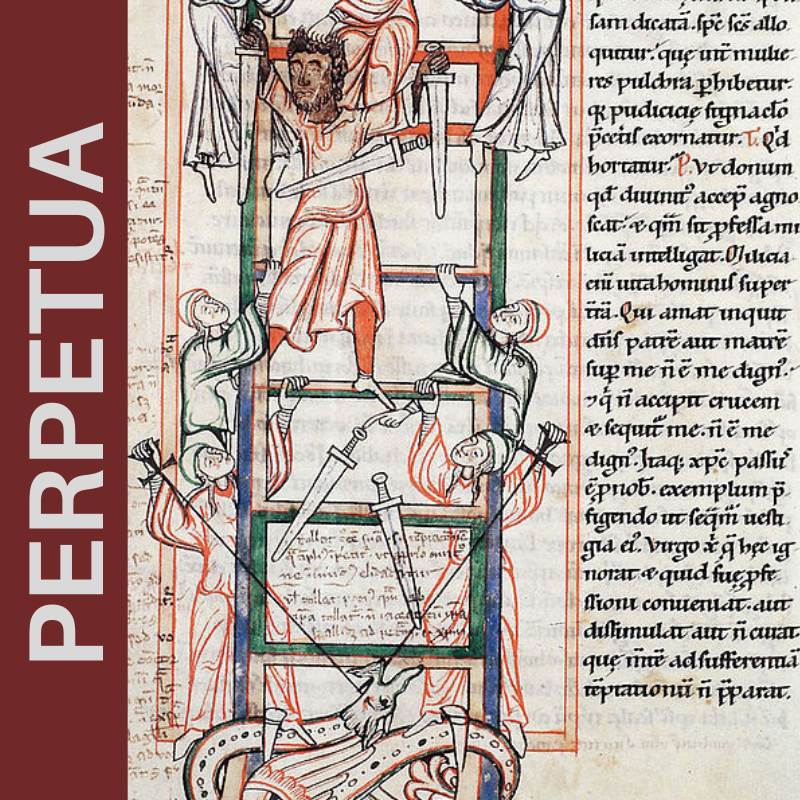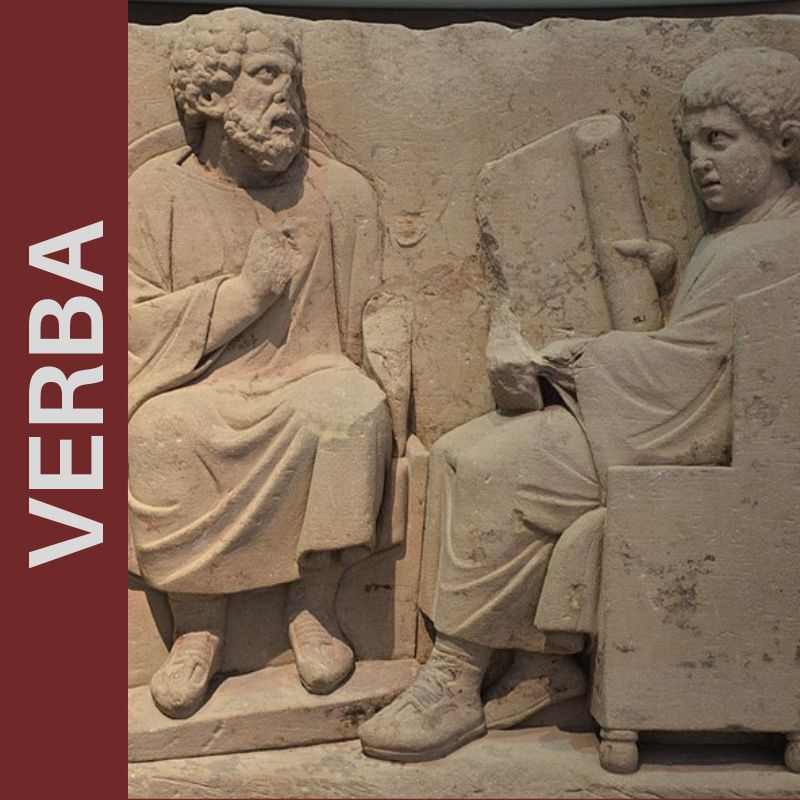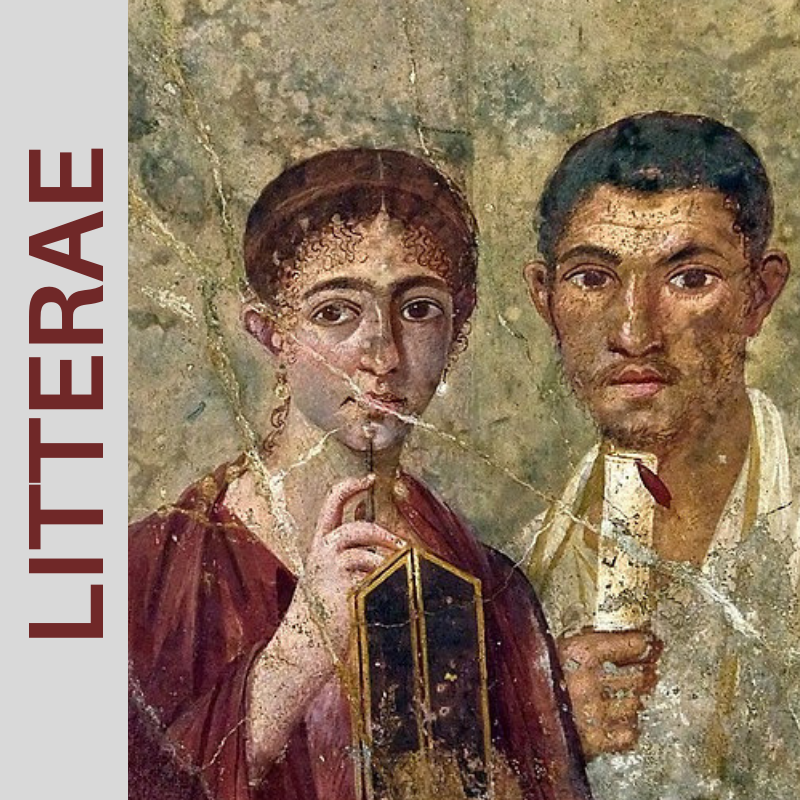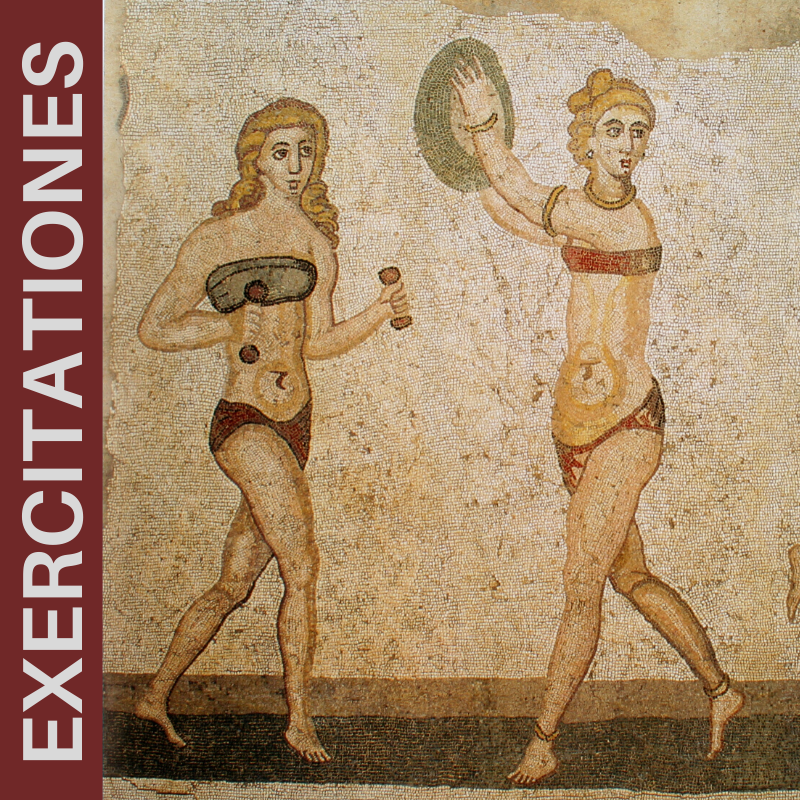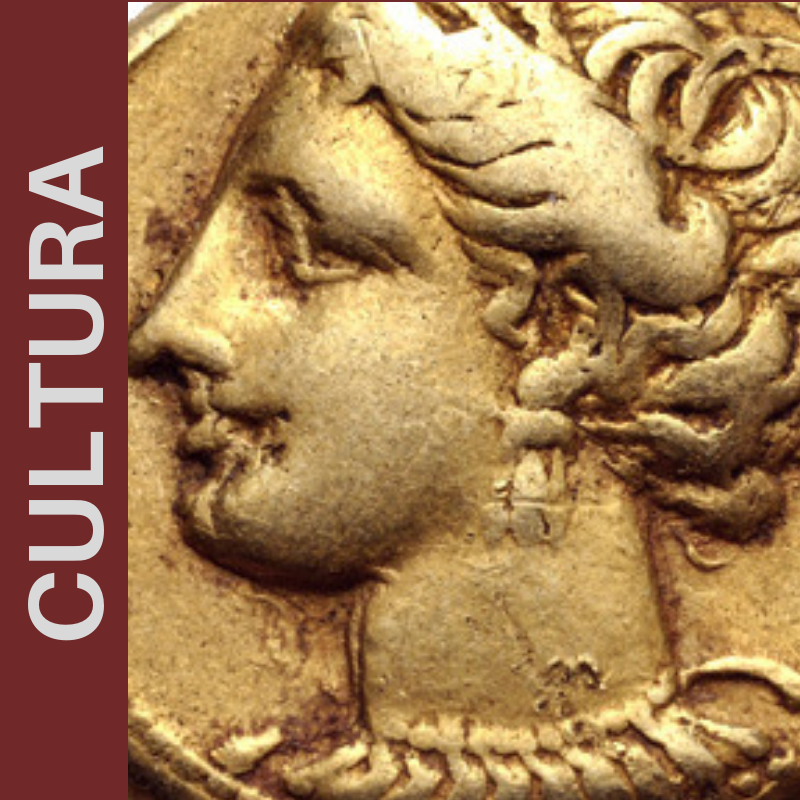A
Jacob’s Ladder
(adapted from St. Augustine, City of God 16.38)
Proficiscens itaque in Mesopotamiam Iacob in somnis accepit oraculum, de quo sic scriptum est: Et Iacob profectus est in Charran et venit in locum et dormivit ibi, sole cadente. Sumpsit aliquos ex lapidibus loci ut poneret eos sub caput suum. Dum dormiebat in loco illo, in somnis haec vidit. Et ecce scala super terram posita est, cuius caput tangebat ad caelum. Et angeli Dei ascendebant et descendebant per illam. Deinde Dominus incumbebat super illam et dixit: “Ego sum Deus Abraham patris tui et Deus Isaac. Noli timere. Terram, in quā nunc tu dormis, tibi dabo illam et nato tuo; et postea erunt nati tui tanti ut non numerare eos possis. At differentur supra mare et in Africam et in cadentem solem et ad orientem solem. Nam benedicentur omnes gentes terrae in te et in natis tuis. Et ecce ego sum tecum, ut custodiam te in omni viā quāque ibis. Adducam te in terram hanc, quia non te recedam, donec faciam omnia, quae tecum locutus sum.” Et experrectum est Iacob de somno suo et dixit: “Si est Dominus in loco hoc, ego autem nesciebam.” Et timuit et dixit: “Quam terribilis locus hic; quidem est hic domus Dei et haec porta est quoque caeli.” Et surrexit Iacob et sumpsit lapidem, quem posuerat ibi sub caput suum, et statuit illum titulum et fudit oleum in eum. Vocavit Iacob nomen loci illius: domus Dei.
Nota
St. Augustine of Hippo (354-430 CE) was a Numidian bishop in Roman Africa. He is one of the most important early Christian philosophers and Church fathers. In The City of God, he challenges popular ideas that Christianity brought about the decline of the Roman empire and caused the second sack of Rome by the Gauls in 410 CE. In this passage, Augustine tells the story of Jacob’s dream of the golden ladder to Heaven from Genesis 28:10-19.
Mesopotamia, -ae f. - ancient Mesopotamia
Iacob: nom. of the proper name Jacob
oraculum, -i n. - oracle, prophecy
Charran: acc. sing. A place in the Hebrew Bible thought to be modern Harran, a city in Asia Minor in Turkey
lapis, lapidis m. - stone
somnio (1) - to dream
ecce - behold
incumbo, -cumbere, -cubui, -cubitus - to lean on or over, recline
Abraham - Abraham (indeclinable proper name)
Isaac - Isaac (indeclinable proper name)
in cadentem solem et ad orientem solem: In antiquity it was common to refer to the West as the place of the setting sun and the East as the place of the rising sun.
benedico, -dicere, -dixi, -dictum - to praise, bless (bene + dico)
custodio, -ire, -ii/-ivi, -itum - to watch, protect
terribilis, -e - terrible, dreadful, demanding reverence
titulus, -i m. - a sign, inscription, token
fundō, fundere, fūdī, fūsum - to pour
oleus, -i m. - oil
B
Pliny’s Letter to Emperor Trajan
(adapted from Epistula 10.96)
Omnes res, de quibus dubito, tibi committo, domine. Audiebam Christanos inter se frequenter colligere, sed interfui numquam: ideo cogito eos debere poenas dare, at nescio quomodo aut quācum poenā. Eis ad me tamquam Christianis relatis, hanc rationem sum secutus. Si fassi sunt se esse Christianos, repetivi tamen singulos iterum. Illis iterum fassis tertio postulavi et nunc dixi poenam graviorem esse. Deinde milites iussi sunt illos in suā fide constantes ad iudicium ducere. Alios, quia cives Romani erant, Romam dimisi.
Paucis diebus plura genera criminum inciderunt. Dilatus est libellus sine auctore multorum nomina habens. Quosquos solvi, qui negabant esse se Christianos aut fuisse. Primum iusseram imagines numinum afferri ut illos experirem. Deos veros enim appellaverunt et imaginem tuam ture ac vino coluerunt. Et praeterea sine metu dicebant male Christo, quod Christiani re verā nihil cogi possunt. Alii fassi sunt se prius Christianos fuisse quidem, sed desiisse. Fatebantur autem has fuisse vel culpas suas vel errores: stato die ante lucem conveniebant, et carmen Christo quasi deo dicebat. Tunc iuraverunt se nullam fidem fallere. Inde egressi rediebant ut cibum caperent. Dixerunt eadem desisse post edictum meum. Putabam necesse esse ex duabus ancillis veritatem per tormenta petere. Nihil aliud inveni quam superstitionem maximam et turpissimam.
Visa est enim mihi res tam difficilis ut deberes iudicare. Aliquibus Christianis saepe non concedentibus, plures enim etiam vocabuntur in maius periculum.
Pliny the Younger (Gaius Plinius Caecilius Secundus, 61-113 C.E.) was a lawyer, author, and magistrate in Rome. One of his most famous letters is his exchange with the Emperor Trajan about the Christians in Bithynia and Pontus (in modern Turkey) where Pliny served as the governor. Pliny seeks Trajan’s advice about the Christians in his province.
Christianus, -a, -um - Christian
frequenter - frequently (adv.)
quomodo - in what way, how?
tertio: “for the third time”
libellus, -i m. - little book, pamphlet
tus, turis n. - incense
male dicebant Christo: “to speak badly against Christ” i.e. to denounce Christ
edictum, -i n. - proclamation, edict
necesse (indecl.) - necessary
ancilla, -ae f. - female servant, handmaid
veritas, -tatis f. - truth
tormentum, -i n. - punishment
superstitio, -onis f. - superstition, unreasonable religious belief
C
Isis Appears to Apuleius
(adapted from Apuleius, Metamorphoses 11.5)
"Ecce, Luci,” dicit Isis, “tuis precibus fidelibus tam mota sum ut adsim, naturae parens, elementorum omnium domina, saeculorum progenies prima, suprema numinum, deorum dearumque facies uniformis, quae caeli clarissima supera, maris salubres fluctus, inferorum regiones tacitas rego. Meum numen solum multiformi facie, pluris templis, nominibus diversis totus mundus coluit. Primigenii Phryges Pessinuntiam deorum matrem appellant, autochthones Attici Cecropeiam Minervam, gaudentes Cyprii Paphiam Venerem, Cretes sagittiferi Dictynnam Dianam, Siculi trilingues Stygiam Proserpinam, Eleusinii veteres Actaeam Cererem. Iunonem alii, Bellonam alii, Hecatam isti, Rhamnusiam illi, et Aethiopes validique Aegyptii plurimis caerimoniis meam potestatem colentes appellant me vero nomine, reginam Isidem. Accessi tuos casus dolens ut nunc te de dolore solvam. Noli timere; iam tibi gratiā meā pervenit dies salutis.”
Apuleius’ Metamorphoses (or The Golden Ass) is one of the best sources on the cult of Isis, the Egyptian deity who was seen as a protector and law-giver. The novel chronicles the misadventures of Lucius, a young man transformed into a jackass through his relentless curiosity about magic. In this passage, Lucius finds salvation and regains his human form through the grace of Isis who appears to him.
Ecce: “Behold!” (interjection to call attention or to show surprise)
Lucius, -i m. - Lucius (central figure in Apuleius, Metamorphoses)
Isis, Isidis f. - Isis (Egyptian deity)
elementum, -i n. - first principle, element
progenies, -ei f. - offspring
uniformis, -e - having one shape, uniform
salubris, -e - health-giving, healthful
multiformis, -e - many-shaped (related to uniformis above)
species, -ei f. - aspect, appearance
primigenii Phryges: “First-born Phyrgians.” Phrygians were the inhabitants of Phrygia (Asia Minor) where ancient Troy was located.
Pessinuntiam deorum matrem: “Pessinuntian mother of the gods” - a cult name for the Phrygian goddess Cybele (Roman Magna Mater).
autochthones Attici: “people of Attica, born from the earth.” Attica is the region of Greece surrounding Athens.
Cecropeiam Minervam: “Cecropian Minerva.” Cecrops was a mythical king of Athens who was born from the earth; Minerva (Greek Athena) is the goddess of war, wisdom, and handicrafts.
Cyprius, -a, -um - Cyprian, from the island of Cyprus
Paphiam Venerem: “Venus from Paphos.” Paphos was an important cult center of Aphrodite (Roman Venus) on the island of Cyprus.
Cretes sagittiferi: “arrow-bearing Cretans.” The people who lived on the Greek island of Crete were famous archers.
Dictynnam Dianam: “Diana Dictynna.” Dictynna (“of the hunting nets”) was one of the cult names of the goddess Diana (Greek Artemis)
Siculi trilingues: “triple-tongued Sicilians.” The people of Sicily were said to have spoken three languages during the history of their island: Sicilian, Greek, and, finally, Latin.
Stygiam Proserpinam: “Stygian Persephone.” The river Styx was the river of the Underworld where the goddess Persephone ruled beside her husband Hades.
Eleusinus, -a, -um - Eleusinian, inhabitant of Eleusis, Greece which was the site of the main cult of Demeter.
Actaeam Cererem: “Actaean [of Attica] Ceres” Ceres (Greek Demeter) was the goddess of agriculture
Iunonem: Juno (Greek Hera), wife of Jupiter (Greek Zeus), was the queen of the gods and goddess of marriage.
Hecatam: Hecate, the goddess of magic, ghosts, and necromancy.
Rhamnusiam: “Rhamnusia,” a cult name of Nemesis, the goddess of retribution and punishment for evil deeds. Rhamnus in Greece is the site of one of her temples.
Aethiopes, -um m. pl. - Ethiopians
Aegyptius, -a, -um - Egyptian
caerimonia, -ae f. - sacred rite, religious ceremony
regina, -ae f. - queen
D
Lucretius on Freedom from the Constraining Power of Religion
(adapted from Lucretius, De Rerum Naturā 1.62-79)
Dum vita humana, pressa graviore sub religione, ante oculos nostros in terris turpiter iacebat, religio ipsa caput a caeli regionibus ostendebat, facie terrente supra homines stans. Primum Graius homo tollere contra eam oculos est ausus primusque obsistere contra. Ille neque famam deorum nec fulmina nec caelum minitanti murmure timuit. Tam acriter virtutem animi hortatus est ut primus portas naturae frangeret.
Ergo valida vis animi vicit et processit longe extra flammantia moenia mundi atque mente animoque omne immensum spatium transiit. Unde victor omnia nobis refert: Quid potest oriri? Quid non? Quanta vis in quāquā re adest? Quā ratione finis constitutus est? Mentibus ratione de religione solutis, victoria eius caelo nos exaequat.
Lucretius (99-55 B.C.E.) was an Epicurean philosopher. His only surviving work is de Rerum Naturā, a didactic poem in six books of Latin hexameters. The poem instructs readers in Epicurean philosophy, including an atomic theory that explains how all matter in the universe is made by the chance union of indivisible, indestructible particles, and not by the will of the Roman gods. In the passage below, Lucretius depicts Epicurus as a visionary who releases humans from the oppression of irrational religious obligation through knowledge of the workings of the universe.
religio, -onis f. - religious obligation (for a deeper understanding of this term see Springer’s “The Role of Religio, Solvo and Ratio in Lucretius” CW 1977 [55-61])
opprimō, -primere, -pressī, -pressum - to press down, suppress
insto, -stare, -stiti, -statum - to press upon, threaten (+ dat.)
obsistō, -sistere, -stitī, -stitum - oppose, resist
fulmen, fulminis n. - lightening, thunderbolt
minitanti murmure: “with menacing crash”
vividus, -a, -um - full of life, vigorous
extra - outside of, beyond (+ acc.)
flammo (1) - to kindle, blaze
victoria, -ae f. - victory
exaequo (1) - to make even or equal (make (acc.) equal to (dat.))
Except where otherwise noted, material by Roman and Beyond: a Latin Curriculum is licensed under a Creative Commons Attribution-NonCommercial-ShareAlike 4.0 International License.
